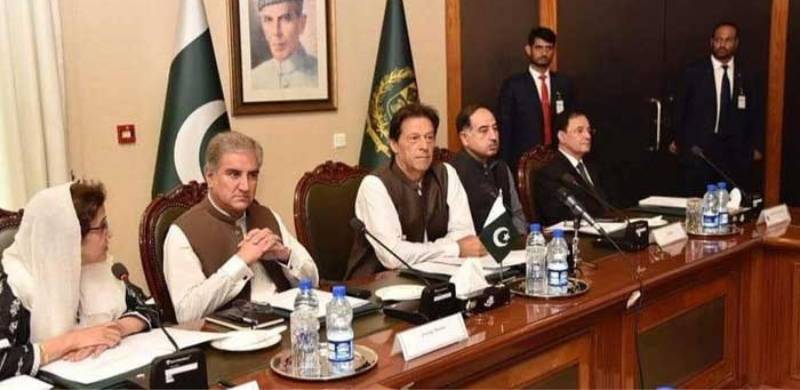
The International Monetary Fund (IMF) was critical of the financial policy 'missteps' taken by the previous Pakistan Tehreek-e-Insaf (PTI) government, during which the organization claims programme implementation had completely regressed shortly after the completion of the sixth review in November 2021.
According to the latest IMF report which comes shortly after the revival of Pakistan's stalled Extended Fund Facility (EFF) programme, the IMF-implemented fiscal adjustment was undone amid a politically charged landscape, and several crucial EFF elements were reversed during PTI chief Imran Khan's regime.
The government neglected to meet two performance criteria (PC) for the end of June, namely net international reserves (NIR) and primary budget deficit, as well as three continuous PCs. Additionally, seven structural benchmarks (SBs) were also not met, reports Geo News.
The report cites 'political tensions' as the reason for the financial slippages. The failure to meet certain criterion and benchmarks caused the FY22 fiscal deficit to grow by more than 1.5 percent of GDP, leading to the missing of the end-June fiscal target by a wide margin.
Following Imran Khan's ouster through a vote of no-confidence in April, the Pakistan Muslim League-Nawaz (PML-N) led coalition government attempted to reverse the policy decisions implemented by the PTI government. After an initial delay, the relief package was reversed in late May, followed by the petrol price hikes and the restoration of the Petroleum Development Levy (PDL).
Last week, the IMF revived Pakistan’s Extended Fund Facility (EFF) programme, according to which Pakistan was set to receive $6bn over a 39-month period. The IMF signed an extension for the program on August 29, which will see it continue until June 2023.
According to the latest IMF report which comes shortly after the revival of Pakistan's stalled Extended Fund Facility (EFF) programme, the IMF-implemented fiscal adjustment was undone amid a politically charged landscape, and several crucial EFF elements were reversed during PTI chief Imran Khan's regime.
The government neglected to meet two performance criteria (PC) for the end of June, namely net international reserves (NIR) and primary budget deficit, as well as three continuous PCs. Additionally, seven structural benchmarks (SBs) were also not met, reports Geo News.
The report cites 'political tensions' as the reason for the financial slippages. The failure to meet certain criterion and benchmarks caused the FY22 fiscal deficit to grow by more than 1.5 percent of GDP, leading to the missing of the end-June fiscal target by a wide margin.
Following Imran Khan's ouster through a vote of no-confidence in April, the Pakistan Muslim League-Nawaz (PML-N) led coalition government attempted to reverse the policy decisions implemented by the PTI government. After an initial delay, the relief package was reversed in late May, followed by the petrol price hikes and the restoration of the Petroleum Development Levy (PDL).
Last week, the IMF revived Pakistan’s Extended Fund Facility (EFF) programme, according to which Pakistan was set to receive $6bn over a 39-month period. The IMF signed an extension for the program on August 29, which will see it continue until June 2023.

